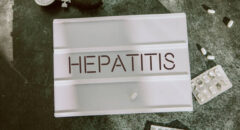
When you think about catching a disease normally you wouldn’t think that a simple trip to the barbershop or beauty salon would cause you to catch hepatitis C. Now let’s think about this for a moment. A man goes to the barbershop to get an edge up and the barber accidentally nicks him with the clippers, his client’s face starts to bleed. After the edge up is completed the client leaves and another customer sits down in the chair to get serviced but your barber fails to clean his clippers in between each client. The first client does not know he has hepatitis C and neither does his barber. A simple scénario like this can create a major health scare for everyone whom this barber interacts with especially if someone else gets nicked by the clippers or already has infected blood.
So what is hepatitis C? Hepatitis C is a virus that infects the liver and can be spread by contact with an infected person’s blood. Most people don’t know they have Hep C until they start experiencing some liver damage and to make matters worse this can take many years for this to happen. Many people find out by accident that this disease is present within their bodies after they go for a routine check-up or attempt to donate blood.
READ: Why Hepatitis C Testing is Important
Hep C Risk Factors:
You can get a hep C diagnosis from the following if certain cleaning precautions are overlooked by you or certain professionals:
1. Blood transfusion or organ transplants.

Many people who have donated organs or had organ transplants before 1992 were at a high risk of contracting Hepatitis C because there was no test available at the time to detect the virus.
2. Illegal drug usage.

Some people like to use needles to inject illegal or illicit drugs into their bodies. I would suggest that if you have a drug addiction that you seek help from a medical professional and stray away from this particular lifestyle. Sharing needles with others is one of the most common ways to contract hepatitis C within the United States.
READ: HIV Isn’t the Only Infection to Fear When Sharing Needles
3. Tattoos or piercing.

You can contract Hep C if you get a tattoo or piercing with a needle that had infected blood on it and the equipment wasn't thoroughly cleaned after being used. So if you plan on getting a new tattoo I would highly recommend you speak to the artist and discuss their cleaning methods.
4. Razors and toothbrushes.

Please, please, please do not use other people’s grooming tools without cleaning them or for goodness sake don’t use them at all and get your own. Nail clippers, razors, nail scissors, toothbrushes and towels may carry traces of blood on them and this will increase your risk for contracting Hepatitis C. Using another person’s toothbrush to clean your mouth is not safe and let’s just be blunt and say it’s nasty. Traces of blood could be on the toothbrush from a mouth injury and this can gravely impact your health.
5. Hairdressers and barbers.

If the shop you attend doesn’t have their combs or tools soaking in a disinfectant or you don’t see them cleaning the clippers in between each client; then you need to find a better professional. There should be a
cleaning protocol in place and every skin cut or graze could put you at risk for Hep C. Would you rather risk your health on a cut or style with someone who clearly doesn’t care about preventing the spread of infections and diseases?
READ: Do these four things to avoid a Hepatitis C Reinfection
6. Sexual relations.

If you are choosing to have sex, just make sure you practice safe sex. Depending on the type of sex you are having you could catch hepatitis C. According to Hepatitis C Trust, a study conducted among 895 monogamous heterosexual couples found people whose partner was chronically infected with hepatitis C were infected by their partner. This same research stated the couples denied having hep C and denied having unprotected anal sex or vaginal sex during menstruation.
Avoid participating in the following risky sexual behaviors:
- Having unprotected sex,
- Sharing sex toys that have been used anally,
- Sex involving more than one person,
- Vaginal sex during menstruation,
- Sex with a person who has an STD that would lead to blood to blood contact,
- Using drugs during sex,
- Rough sex that could lead to blood leaking from the vagina or penis.
7. An infected mother passing Hep C to her baby.

A mother can pass Hep C to her baby during the time of birth if the precautions and treatment is not sought.
Most people may not experience any hepatitis C symptoms when they are first infected, but some people may develop the following symptoms:
- Feeling exhausted
- Joint pain
- Dark urine
- Jaundice (yellowish eyes and skin)
- Itchy skin
- Sore muscles
If you feel that you may have been exposed to hepatitis C get tested immediately to prevent further damage to your liver and make sure you avoid risky lifestyle behaviors that can increase your risk of contracting the infection.









